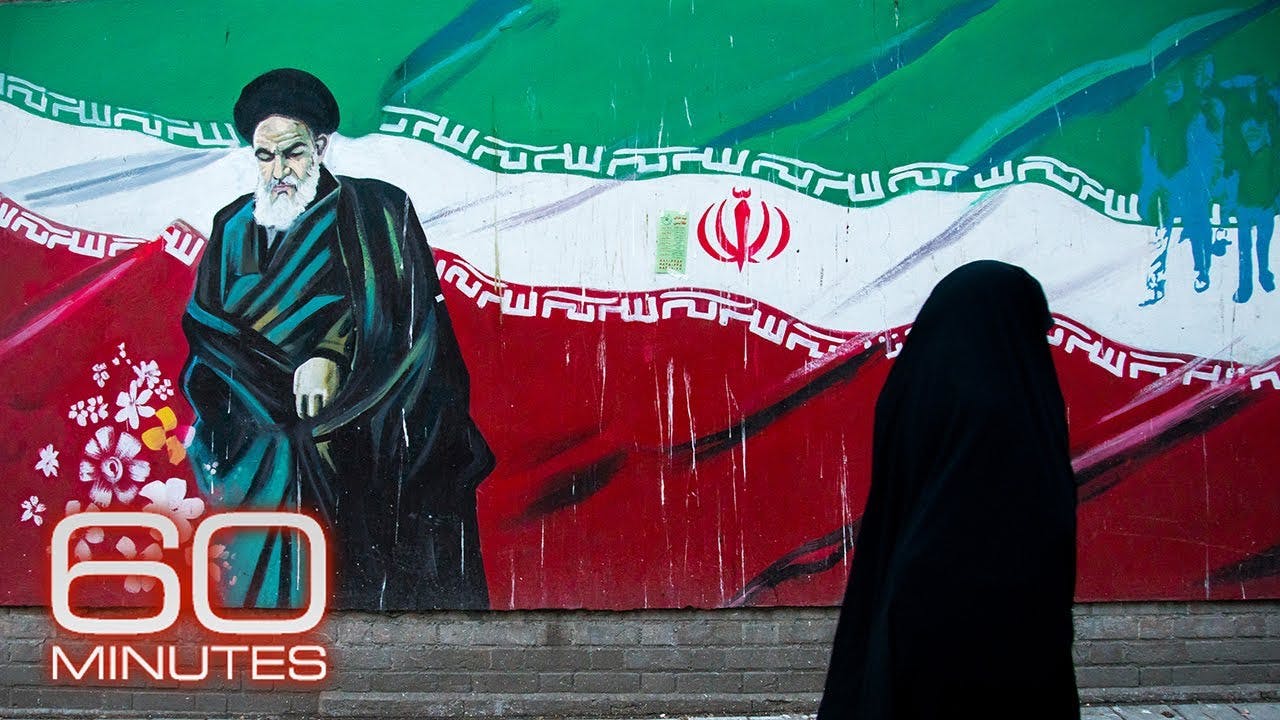Stories about Iran | 60 Minutes Full Episodes
02 Mar 2024 (almost 2 years ago)

Iran's Assasins (11s)
- Tensions between the US and Iran have escalated due to attacks on US bases in Syria and Iraq by Iranian-backed militias.
- Iran employs hitmen worldwide to intimidate, abduct, and assassinate perceived enemies of the regime, including former US government officials like Mark Esper and Mike Pompeo.
- Iranian dissidents living abroad, such as Masih Alinejad and Jamshid Sharmahd, have been targeted by Iran's assassination and kidnapping plots.
- Iran has been using criminals from Eastern European syndicates to carry out assassinations and kidnappings on Western soil, often targeting Iranian dissidents and critics of the regime.
- In recent years, Iran has attempted 15 kidnapping and assassination attempts in the UK alone, and several Iranian dissidents have been successfully kidnapped and smuggled back to Iran, where some were executed.
- The Iranian government recruits criminals by offering them money or turning a blind eye to their illegal activities.
- Despite these attempts, Iran has not been successful in carrying out any assassinations on American soil, although several American officials and others are known to be targets.
- The Iranian government is known for its harsh treatment of citizens who criticize the regime, and people in Iran risk being killed for expressing dissenting opinions.
A Prisoner of Iran (13m24s)
- Siamak Namazi, an Iranian-American businessman, was imprisoned in Iran's notorious Evin Prison for over five years.
- Namazi's release, along with four other Americans, was part of a deal involving $6 billion in restricted Iranian oil revenue.
- Despite warnings, Namazi traveled to Iran in 2016 and was arrested in 2018 without explanation.
- He endured torture and psychological abuse during interrogations that lasted up to 9 hours a day.
- Imad Shari, another Iranian-American businessman, was arrested in Iran in 2018 and sentenced to 10 years in prison.
- After escaping with the help of smugglers, Shari was recaptured and underwent further interrogation.
- Shari was eventually rescued during a prison riot and released as part of a prisoner exchange after two years of negotiations.
- The text highlights the risks of hostage-taking by Iran and advises American citizens, including Iranian-Americans, not to travel to Iran.
- The issue of hostage-taking as a form of statecraft by Iran is discussed, and empathy is expressed for the families of hostages taken in Israel.
Raisi of Iran (26m27s)
- The US imposed financial sanctions on Iran in 1979 and designated it as a leading state sponsor of terrorism.
- The Obama Administration agreed to sanctions relief in exchange for Iran dismantling its nuclear program, but the Trump Administration withdrew from the deal and increased economic pressure on Iran.
- President Raisi was elected a year ago, and negotiations for a new nuclear deal began, but Iran's demands led to a stalemate.
- President Raisi expressed distrust in the US and wants guarantees before agreeing to a new deal.
- The US and the West have concerns about Iran's nuclear program despite Iran's claims that it's for peaceful purposes.
- President Raisi suggested that the release of American citizens detained in Iran could be negotiated separately from the nuclear talks.
- President Raisi criticized the Biden Administration for maintaining the sanctions imposed by the Trump Administration.
- Iran's economy has suffered under the sanctions, leading to a recession, reduced oil exports, and high inflation.
- President Raisi signed a decree making women who don't dress modestly subject to arrest, leading to the death of a young woman in police custody.
- President Raisi denies allegations of human rights violations and claims that those executed were criminals who received fair trials.
- Iran vowed revenge on the US government for killing General Qasem Soleimani and is accused of plotting to assassinate former US National Security Adviser John Bolton.
- President Raisi is defiant in the face of US sanctions, asserting that Iran will not back down and can survive the economic pressure.
Incoming (40m33s)
- In January 2020, tensions between the US and Iran escalated after a US drone strike killed Iran's top general, Qasem Soleimani, who was believed to be responsible for the deaths of over 600 US troops during the Iraq occupation.
- In retaliation, Iran launched a ballistic missile attack on an Iraqi airbase housing 2,000 US troops, causing significant damage but no fatalities.
- The US had no defense against the ballistic missiles and evacuated as many troops and aircraft as possible before the attack.
- Despite concerns about provoking more Iranian attacks, the US decided to take action against Soleimani, considering the risk of inaction to be greater.
- Iran mistakenly shot down a Ukrainian airliner, resulting in the tragic deaths of 76 innocent people, while on high alert for a possible US strike.